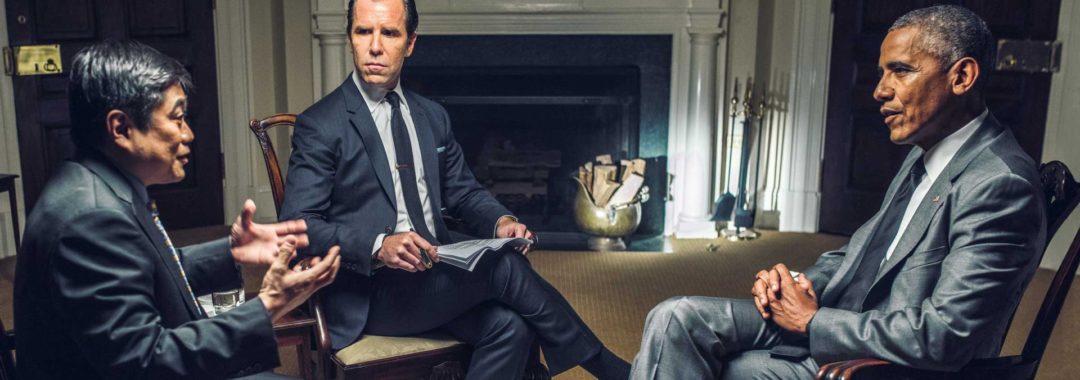Wired magazine have released a special edition edited by US President Barack Obama. It includes a long interview between MIT’s Joi Ito, Wired’s Scott Dadich, and US President Barack Obama. The interview, titled “Barack Obama, neural nets, self-driving cars, and the future of the world”, discusses a range of topics including Prof. Nick Bostrom’s work on superintelligence. Two exchanges which we thought were particularly interesting are included below:
Dadich: But there are certainly some risks. We’ve heard from folks like Elon Musk and Nick Bostrom who are concerned about AI’s potential to outpace our ability to understand it. As we move forward, how do we think about those concerns as we try to protect not only ourselves but humanity at scale?
Obama: Let me start with what I think is the more immediate concern—it’s a solvable problem in this category of specialized AI, and we have to be mindful of it. If you’ve got a computer that can play Go, a pretty complicated game with a lot of variations, then developing an algorithm that lets you maximize profits on the New York Stock Exchange is probably within sight. And if one person or organization got there first, they could bring down the stock market pretty quickly, or at least they could raise questions about the integrity of the financial markets.
Then there could be an algorithm that said, “Go penetrate the nuclear codes and figure out how to launch some missiles.” If that’s its only job, if it’s self-teaching and it’s just a really effective algorithm, then you’ve got problems. I think my directive to my national security team is, don’t worry as much yet about machines taking over the world. Worry about the capacity of either nonstate actors or hostile actors to penetrate systems, and in that sense it is not conceptually different than a lot of the cybersecurity work we’re doing. It just means that we’re gonna have to be better, because those who might deploy these systems are going to be a lot better now.
Ito: I generally agree. The only caveat is that there are a few people who believe that there is a fairly high-percentage chance that a generalized AI will happen in the next 10 years. But the way I look at it is that in order for that to happen, we’re going to need a dozen or two different breakthroughs. So you can monitor when you think these breakthroughs will happen.
Obama: And you just have to have somebody close to the power cord. [Laughs.] Right when you see it about to happen, you gotta yank that electricity out of the wall, man.
Ito: What’s important is to find the people who want to use AI for good—communities and leaders—and figure out how to help them use it.
Dadich: Is there also a risk that this creates a new kind of arms race?
Obama: I think there’s no doubt that developing international norms, protocols, and verification mechanisms around cybersecurity generally, and AI in particular, is in its infancy. Part of what makes this an interesting problem is that the line between offense and defense is pretty blurred. And at a time when there’s been a lot of mistrust built up about government, that makes it difficult. When you have countries around the world who see America as the preeminent cyberpower, now is the time for us to say, “We’re willing to restrain ourselves if you are willing to restrain yourselves.” The challenge is the most sophisticated state actors—Russia, China, Iran—don’t always embody the same values and norms that we do. But we’re gonna have to surface this as an international issue in order for us to be effective.
